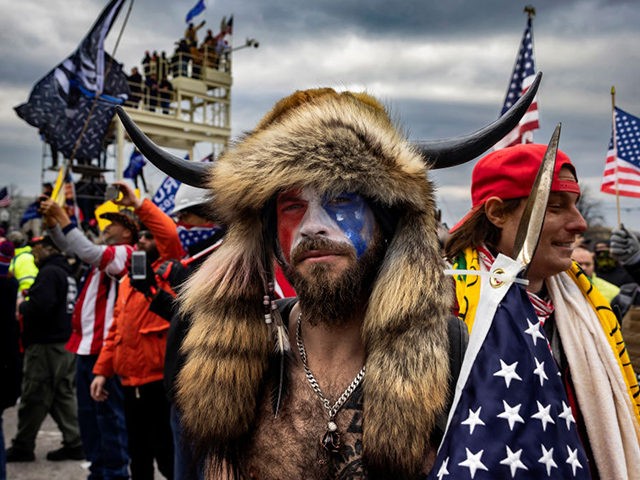A new intelligence bulletin drafted by the FBI highlights the risk the QAnon conspiracy theory poses to the United States.
The bulletin, obtained by NBC News, details followers of the QAnon conspiracy theory may commit political violence, after being radicalized by information shared online.
The new strategy is being released just after NBC News obtained a new, unclassified FBI intelligence bulletin highlighting the risk that adherents of the conspiracy theory QAnon may commit political violence.
“The participation of some domestic violent extremists who are also self-identified QAnon adherents in the violent siege of the U.S. Capitol on 6 January underscores how the current environment likely will continue to act as a catalyst for some to begin accepting the legitimacy of violent action,” the bulletin says, according to the report.
The information raises concerns that the United States government may take direct action to combat the narratives spread by QAnon — if it considers the conspiracy theory a direct threat to national security.
The bulletin notes the FBI arrested more than 20 self-identified followers of QAnon who participated in the January 6 Capitol Hill riots to protest the certification of the 2020 presidential election.
The White House announced Tuesday their intention to spend more resources fighting “the polarization often fueled by disinformation, misinformation, and dangerous conspiracy theories online,” as part of a renewed effort to fight domestic terrorism.
Democrats and corporate media continue fueling fears about the fringe conspiracy theory, in an attempt to tie it to supporters of President Donald Trump.
But a Suffolk University Poll released in February showed barely four percent of Trump supporters had a favorable opinion of QAnon and 31 percent had an unfavorable view of it.
Suffolk University poll: Trump supporters opinion of QANON
Favorable: 4%
Unfavorable: 31%
Never Heard of: 43%
Undecided: 21%— Ryan James Girdusky (@RyanGirdusky) February 22, 2021
Trump refused to condemn the group when NBC’s Savannah Guthrie asked him to do so during a 2020 presidential town hall, claiming he was unfamiliar with what the QAnon conspiracy was about.
“What I do hear about it is that they’re very strong against pedophilia, and I agree with that,” he said.
The “QAnon” conspiracy surrounds an individual named “Q” who, without corroboration, claims to be a high-ranking government official who has access to classified information about what is really going on in the government and posts it on anonymous message boards. Often described as an online joke or a hoax, the “Q” poster has made many predictions of events that never came true.

COMMENTS
Please let us know if you're having issues with commenting.